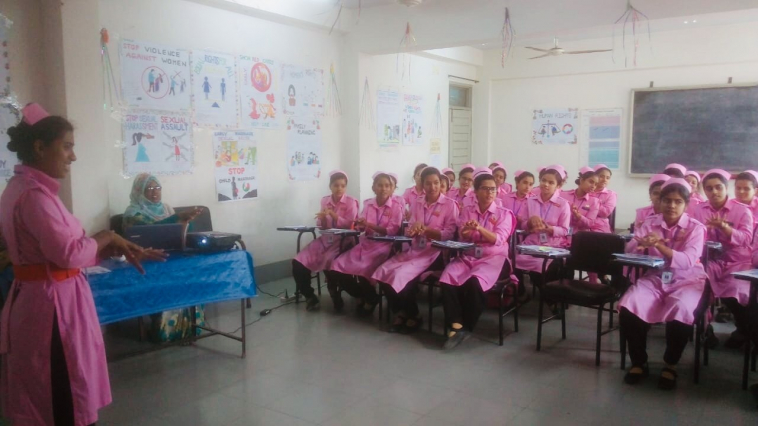Partnering With Midwives in Bangladesh: One Year On
Every pregnant women should be able to access quality maternity care, if we are to achieve the 2030 Agenda for Sustainable Development, notably SDG3 and SDG5.

Partnership between different cadres, such as OBGYNs, Nurses and Midwives is key to ensuring that women & their babies receive respectful maternity care throughout pregnancy, birth and in the postnatal period.
Bangladesh’s institutional birth rate is steadily increasing. In 2014, Bangladesh’s Health Survey stated a caesarean section rate of 23%. However, the presence of skilled births attendants’ remains low, with only 50% of births between 2006 and 2015 attended to by a skilled birth attendant. Evidence shows that midwives can provide 87% of the essential care needed for women and newborns, and therefore investing in a midwifery cadre would have a positive return on lives saved and caesarean sections averted.
Family Planning service providers in Bangladesh are working hard to ensure that all women have knowledge and the option to choose a contraceptive method if they wish to. The contraceptive prevalence rate is 62% and the unmet need for Family Planning decreased to 11% in 2019. Over the implementation of FIGO’s Postpartum Intrauterine Device (PPIUD) Initiative, we have observed that quality contraceptive counselling at ANC visits has helped women to choose a contraceptive method.
Training midwives in PPIUD service provision along with counselling of available PPFP methods, could help Bangladesh to accelerate the use of modern contraceptives, as well as contribute to a reduction unintended pregnancies. As a part of a team of obstetricians and nurses, midwives can be crucial to meeting maternal health and Sustainable Development Goal targets, providing continuous quality supportive care that goes beyond childbirth to family planning, screening for disease and more.
Since 2018 our Bangladeshi Member Society, The Obstetrical and Gynaecological Society of Bangladesh (OGSB), has worked alongside UNFPA as part of FIGO’s PPIUD Initiative to train midwives in postpartum family planning counselling and insertion of postpartum intrauterine devices, after vaginal delivery. Over 100 representatives from 38 Midwifery Institutes were trained as master trainers in PPIUD counselling and insertion. These faculties are currently providing hands on training to their student midwives on comprehensive PPFP counselling and PPIUD insertion, ensuring that midwives once deployed can reach many women with these essential services.
In Bangladesh, in-service midwives are now posted at Upazilla Health Complexes where they play a vital role in ensuring women and their babies receive skilled quality care during pregnancy and childbirth through the provision of respectful ANC, delivery and PNC care to the women. In 2020 we trained 95 in-service midwives working in 24 Upazilla Health Complexes in Dhaka Division on PPFP Counselling and PPIUD insertion. Smriti Biswas, a Midwife from Alfadanga Upazilla Health Complex of Faridpur district said
"As we have now the counselling skill from the PPIUD training, after the training, we are actively counselling women and encouraging them to decide about their method of choice."
The PPIUD initiative, by working in partnership with midwifery faculties and training practicing in-service midwives, has ensured that the service provision of PPFP and PPIUD services outlives our project, and provides women with quality maternity care, increased contraceptive choice and timely contraceptive services.